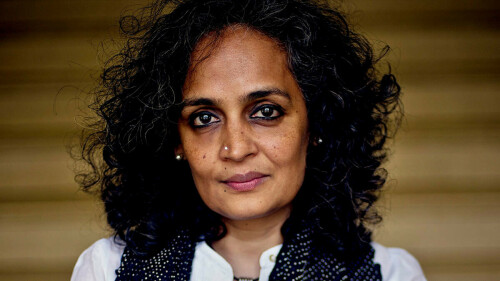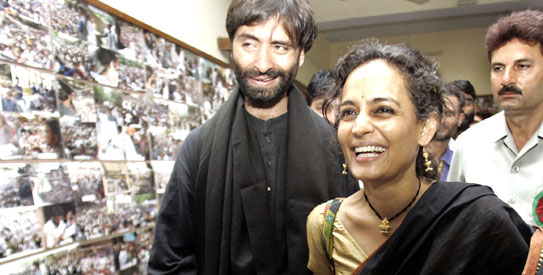Indian authorities have allowed the prosecution of Booker Prize-winning novelist Arundhati Roy under a stringent anti-terror law for a 2010 speech about Indian-occupied Kashmir (IoK), according to media outlet India Today.
Roy, 61, is one of India’s most famous living authors, but her writing and activism, including her trenchant criticism of Prime Minister Narendra Modi’s government, have made her a polarising figure at home.
A criminal complaint accusing her and several others of sedition had languished in India’s notoriously glacial criminal justice system since it was first filed in 2010. The original complaint accuses Roy and others of giving speeches advocating the secession of IoK from India.
IoK is one of the most sensitive topics of public discussion in India, which has fought two wars and countless skirmishes with Pakistan over control of the territory. Tens of thousands of people, including Indian troops, militants and civilians, have been killed in the valley since a freedom movement against Indian rule broke out in 1989.
Roy’s home in New Delhi was besieged by protesters in 2010 when her remarks from the panel discussion became public. Two of her co-defendants have died in the 13 years since the case was first lodged.
Last year, Delhi Lieutenant Governor VK Saxena had given approval for the case to proceed before the courts.
India Today reported a day ago that Saxena had granted sanction for Roy’s prosecution in the case under the Unlawful Activities (Prevention) Act (UAPA).
“Roy … had allegedly made provocative speeches at a conference … The issues discussed and spoken about at the conference propagated the ‘separation of Kashmir from India’,” the reported quoted the governor’s office as saying.
India has used the vaguely worded UAPA legislation against thousands of Kashmiri residents, journalists and dissidents, according to activists. It allows people to be held for six months — often rolled over — without being charged and bail is virtually impossible.
The act deals with inciting any unlawful activity and is punishable with seven years’ imprisonment.
Roy became the first non-expatriate Indian to win the prestigious Booker Prize for her acclaimed debut novel “The God of Small Things” in 1997.
She is also known for her passionate essays on the plight of the poor and dispossessed in India, occasionally earning the ire of the country’s elite.
In recent years her work has marked her as one of the most high-profile critics of Modi’s government, which has been accused by rights groups and others of targeting activists for criminal prosecution and working to suppress free speech.














































Dear visitor, the comments section is undergoing an overhaul and will return soon.